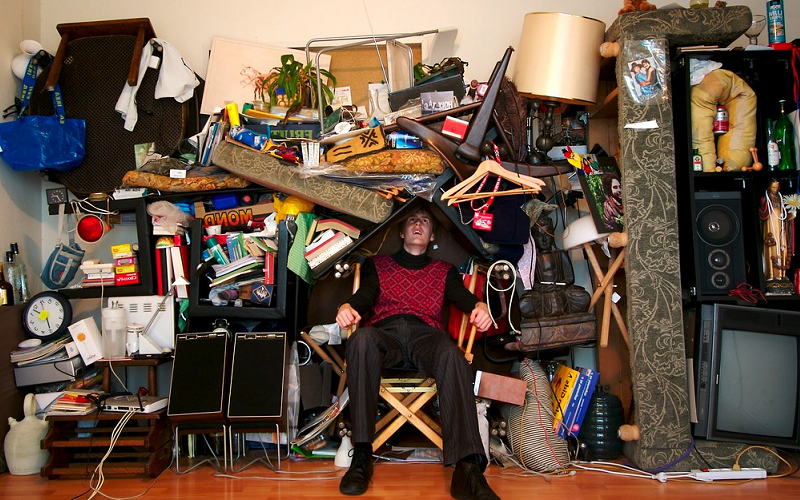Collecting and hoarding can seem like harmless hobbies, but they can quickly spiral out of control and become a source of significant distress for those affected by them. The desire to acquire and retain possessions can be driven by a variety of psychological factors, including a need for control and order, the pursuit of nostalgia, and the search for meaning and purpose. However, when collecting and hoarding become problematic, they can have serious consequences for individuals, their loved ones, and the environment.
Defining Collecting and Hoarding
Collecting and hoarding are behaviors where individuals acquire and retain a large number of items, often beyond what is necessary or practical. Collecting typically involves acquiring items of personal interest or value, such as stamps, coins, or figurines, with the intention of displaying and enjoying them.
On the other hand, hoarding refers to the excessive accumulation of items to the point where it interferes with daily life, creating unsanitary and hazardous living conditions. Both behaviors can be driven by psychological factors such as a need for control, a desire for security, and an emotional attachment to possessions. However, when these behaviors become excessive, they can lead to negative consequences, such as strained relationships, financial difficulties, and decreased physical and mental health.
The Psychology of Collecting
The psychology behind collecting is complex and can vary from person to person. However, some common motivations for collecting include a desire for control and order, the pursuit of nostalgia, the thrill of the hunt, and the search for meaning and purpose.

Collecting can provide a sense of accomplishment and satisfaction as individuals acquire and display items of personal interest or value. It can also serve as a way to connect with others who share similar interests and provide a sense of belonging. In some cases, collecting can also be tied to childhood experiences and emotions, as individuals seek to revisit positive memories and emotions associated with certain items. Ultimately, collecting can provide a sense of purpose, identity, and fulfillment for those who engage in this behavior.
- Desire for control and order: Collecting provides a sense of order and structure, as individuals acquire items that fit within a specific category or theme. This can help them feel more in control of their environment and provide a sense of organization.
- Pursuit of nostalgia: Collecting can be tied to positive memories and emotions from childhood or past experiences. Individuals may seek to revisit these memories and emotions through collecting items that evoke these feelings.
- Thrill of the hunt: For some individuals, the process of acquiring items for their collection can be as exciting and fulfilling as the collection itself. The thrill of finding a rare or hard-to-find item can provide a sense of satisfaction and accomplishment.
- Search for meaning and purpose: Collecting can provide individuals with a sense of purpose, as they work to build their collection and see it grow over time. It can also serve as a source of personal identity, as individuals define themselves through their collections.
- Connection with others who share similar interests: Collecting can provide a sense of belonging, as individuals connect with others who share similar interests and can discuss and display their collections with others.
- Revisiting childhood memories and emotions: Collecting can be tied to childhood experiences and emotions, as individuals seek to revisit positive memories and emotions associated with certain items.
- Provision of a sense of purpose, identity, and fulfillment: Collecting can provide individuals with a sense of purpose, identity, and fulfillment, as they acquire and display items of personal interest or value. It can provide a source of enjoyment, satisfaction, and pride for those who engage in this behavior.

The Dark Side of Collecting
While collecting can provide enjoyment and fulfillment for some individuals, it can also become problematic and obsessive for others. This can occur when collecting becomes a source of stress and preoccupation, taking up excessive amounts of time, energy, and resources.
Obsessive collecting can cause harm to relationships as individuals prioritize their collection over loved ones, and can result in financial difficulties as they continue to acquire more items. In addition, it can also lead to physical and mental health consequences as individuals struggle to manage the clutter and stress associated with an excessive number of possessions.
Excessive collecting can also have an impact on the environment as individuals acquire and discard large amounts of materials and contribute to the growing problem of waste and overconsumption. When collecting becomes obsessive, it can be a source of significant distress for individuals and those around them.
Understanding Hoarding
Hoarding is a complex behavior that can be difficult to understand. It involves the excessive accumulation of items to the point where it interferes with daily life, creating unsanitary and hazardous living conditions. The psychological factors that contribute to hoarding can be diverse and can include a strong emotional attachment to possessions, a fear of throwing things away, and a perceived need to save items for future use or reference.

Hoarding can be related to anxiety, depression, and trauma, as individuals struggle to cope with past experiences and emotions. It is important to note that hoarding is not simply a result of laziness or poor housekeeping habits. Instead, it is a complex and often distressing behavior that requires professional support and treatment. Understanding the reasons behind hoarding is crucial in order to effectively address and treat this behavior.
- Strong emotional attachment to possessions: Hoarders may feel a deep emotional connection to their possessions and experience distress at the thought of getting rid of them. This attachment can be tied to memories, sentimental value, or a belief that the items will be useful in the future.
- Fear of throwing things away: Hoarders may have a fear of making the wrong decision or regretting getting rid of an item. This can result in indecision and a reluctance to dispose of possessions, leading to excessive accumulation.
- Perceived need to save items for future use or reference: Hoarders may believe that they will need the items they have accumulated in the future and have a difficulty in discarding things, even if they are no longer useful.
- Anxiety, depression, and trauma: Hoarding can be related to underlying mental health conditions such as anxiety and depression. It may also be a coping mechanism for individuals who have experienced trauma or other stressors in their lives.
- Coping with past experiences and emotions: For some individuals, hoarding may serve as a way to cope with negative experiences or emotions, providing a sense of comfort and stability.
- Difficulty with decision making and problem solving: Hoarders may have difficulty making decisions and solving problems, leading to indecision and difficulty in getting rid of items.
- Difficulty managing time and organization: Hoarders may struggle with managing time and organizing their possessions, leading to clutter and disarray in their living spaces.
- Perfectionism and inflexibility: Hoarders may have perfectionist tendencies and a resistance to change, leading to difficulty in letting go of items and making decisions about what to keep and what to discard.
- Avoidance of social interaction and relationship difficulties: Hoarding can lead to social isolation, as individuals become increasingly reclusive due to the cluttered and unsanitary living conditions in their home. This can result in strained relationships with family and friends.
- A lack of resources and support to effectively manage possessions: Hoarding can be a result of limited financial resources, lack of access to storage, and a lack of support from loved ones in managing possessions. These challenges can make it difficult for individuals to address and overcome their hoarding behavior.

